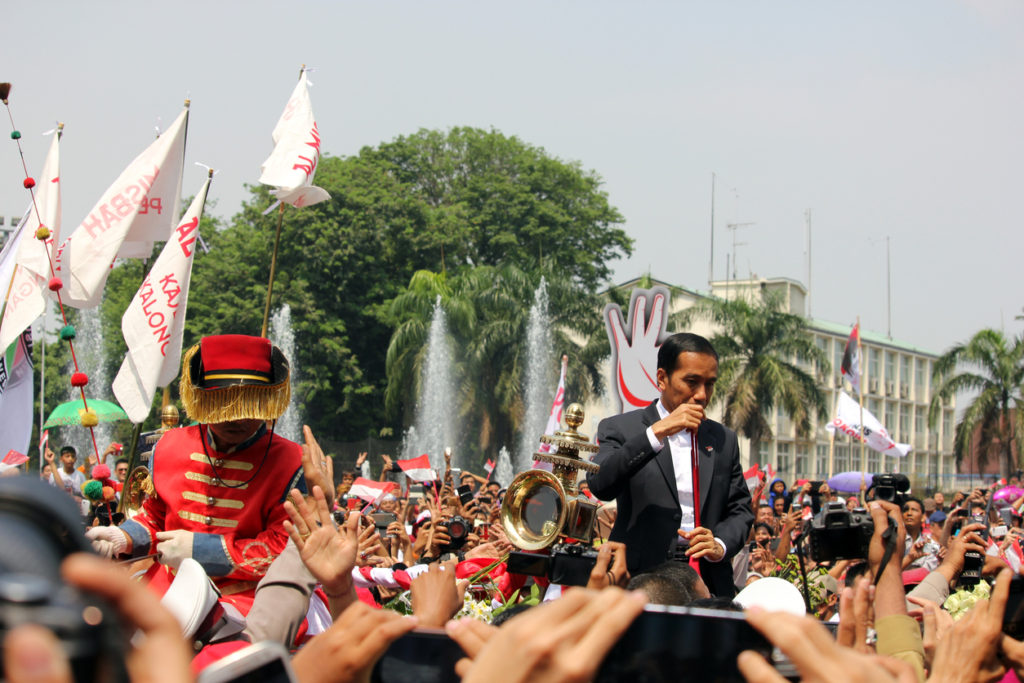Marc Simms is an occasional blogger for Proelium Law LLP. Marc holds a MLitt in Terrorism Studies and a Masters in International Relations, both from St Andrews. His particular interests are in emerging international security issues, unconventional warfare and terrorism.
Indonesian President Joko Widodo has called upon police to kill drug dealers who resist arrest, in part of a marked escalation of the country’s war on drugs.
In the speech made on July 22nd, President Widodo said “shoot them because we are indeed in a narcotics national emergency now”. And it appears that the police are heeding his advice. One week before the speech, a suspected Taiwanese drug dealer was shot dead in a police raid, and less than two days after the speech was made a Chinese amphetamine smuggler was also killed by the police.
These comments are part of a much wider shake-up within the Indonesian police, judiciary, and prison service however. On July 26th, Inspector General Idham Azis was inaugurated as the new chief of police in Jakarta. Azis has also taken a hard-line position on drug smuggling, stating “if the drug dealers want to apologize, it is their business with God. Sending them to God, on the other hand, is my business”.
After revelations about the extent of criminal activity by drug syndicates in Indonesian prisons, plans are being put in place to transfer drug traffickers to four facilities across the archipelago, with the intention of isolating them to monitor their activities more effectively. This will also involve anti-corruption measures aimed at prison guards, whose reputation for being corrupt appears well-deserved after the Sialang Bungkuk prison break this May.
Duterte’s playbook
Human rights organisations fear that Indonesia is looking to adopt the extreme policies of its neighbour, the Philippines, where President Rodrigo Duterte has made international headlines for himself on the back of his brutal war against drug traffickers. There, Durterte is alleged to have overseen a death squad which undertook extra-judicial killings while he was the Mayor of Davao, and has only escalated the violence since becoming President in 2016.
According to Human Rights Watch, over 7000 Filipinos have been killed as a result of Duterte’s war on drugs by both security forces and “unidentified gunmen”, with many being extrajudicial executions. The war on drugs has also accelerated the decline in conditions in Philippine prisons, leading to extraordinary levels of overcrowding, inadequate food, and unsanitary conditions. Police have also been accused of running “secret prisons” off the books and demanding bribes for the release of prisoners.
While it is not clear that Duterte’s drug war is having any influence on the drug trade going by the ever-decreasing price of crystal meth in Manila, it is suspected that at least some drug traffic has been redirected from the Philippines to Indonesia over the past year.
Need advice?
If you’d like further information, or to discuss working with us, please get in touch






